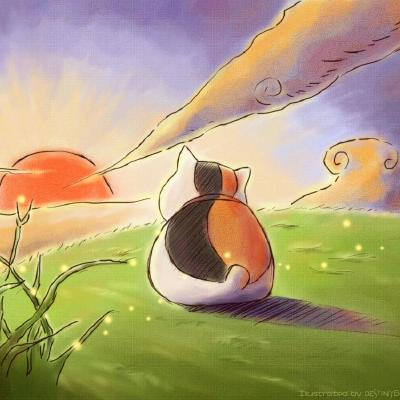
JSON (JavaScript Object Notation) is a lightweight data-interchange format. It is easy for humans to read and write. It is easy for machines to parse and generate. It is based on a subset of the JavaScript Programming Language Standard ECMA-262 3rd Edition - December 1999. JSON is a text format that is completely language independent but uses conventions that are familiar to programmers of the C-family of languages, including C, C++, C#, Java, JavaScript, Perl, Python, and many others. These properties make JSON an ideal data-interchange language.
The Java API to use is JSON.simple
Download the json-simple-1.1.jar and make it into the project structure.(If using intellj Idea)
Writing to files is quite standard, it mainly includes two different classes. JSONObject and JSONArray
JSONObect usesput() method to add into one Json object.
import java.io.FileWriter;
import java.io.IOException;
import org.json.simple.JSONArray;
import org.json.simple.JSONObject;
public class WriteJSONExample
{
@SuppressWarnings("unchecked")
public static void main( String[] args )
{
//First JSONObject
JSONObject fruitDetails = new JSONObject();
fruitDetails.put("Name", "Banana");
fruitDetails.put("Color", "Yellow");
fruitDetails.put("Price", 10);
JSONObject fruitObject = new JSONObject();
fruitObject.put("fruit", fruitDetails);
//Write JSON file
try (FileWriter file = new FileWriter("fruits.json")) {
//We can write any JSONArray or JSONObject instance to the file
file.write(fruitObject.toJSONString());
file.flush();
} catch (IOException e) {
e.printStackTrace();
}
}
}
Result would be
{
"fruit": {
"Name": "Banana",
"Color": "Yellow",
"Price": 10
}
}
JSONArray usesput() method to add into one Json Array.
Example:
import java.io.FileWriter;
import java.io.IOException;
import org.json.simple.JSONArray;
import org.json.simple.JSONObject;
public class WriteJSONExample
{
@SuppressWarnings("unchecked")
public static void main( String[] args )
{
//First JSONObject
JSONObject fruitDetails = new JSONObject();
fruitDetails.put("Name", "Banana");
fruitDetails.put("Color", "Yellow");
fruitDetails.put("Price", 10);
JSONObject fruitObject = new JSONObject();
fruitObject.put("fruit", fruitDetails);
//Second JSONObject
JSONObject fruitDetails2 = new JSONObject();
fruitDetails2.put("Name", "Orange");
fruitDetails2.put("Color", "Orange");
fruitDetails2.put("Price", 5);
JSONObject fruitObject2 = new JSONObject();
fruitObject2.put("fruit", fruitDetails2);
//Add fruits to list
JSONArray fruitList = new JSONArray();
fruitList.add(fruitObject);
fruitList.add(fruitObject2);
//Write JSON file
try (FileWriter file = new FileWriter("fruits.json")) {
//We can write any JSONArray or JSONObject instance to the file
file.write(fruitList.toJSONString());
file.flush();
} catch (IOException e) {
e.printStackTrace();
}
}
}
Result would be
[
{
"fruit": {
"Name": "Banana",
"Color": "Yellow",
"Price": 10
}
},
{
"fruit": {
"Name": "Orange",
"Color": "Orange",
"Price": 5
}
}
]
To read from files, we will need JSONParser, FileReader
There are several Examples online such as GeekForGeek’s tutorial
But it only provides a code example for reading a JSON Object. (and array within one Object). It troubles me for a while when dealing with a JSON file contains one big JSON Array. Yet it turns out to be easy.
Consider this example
import java.io.FileReader;
import java.util.Iterator;
import org.json.simple.JSONArray;
import org.json.simple.JSONObject;
import org.json.simple.parser.*;
class JSONReadExample
{
public static void main(String[] args) throws Exception
{
// parsing file "fruits.json"
Object obj = new JSONParser().parse(new FileReader("fruits.json"));
// could also write separately like
// JSONParser jsonParser = new JSONParser();
// try (FileReader reader = new FileReader("fruits.json"))
// typecasting obj to JSONArray since it is a big Array at init
JSONArray ja = (JSONArray) obj;
// crafting iterator
Iterator itr2 = ja.iterator();
while (itr2.hasNext()) {
JSONObject curr = (JSONObject) itr2.next();
String name = (String) curr.get("Name");
String color = (String) curr.get("Color");
// PAY ATTENTION The number is type long after parsing
long price = (long) curr.get("Price");
/**
* TODO
* Use the fields read, store them in ArrayList || system.out.println
*/
}
}
}
You could also get number of Objects within one JSONArray using size(), so you can use for loop if needed.
JSONArray ja = (JSONArray) obj;
final int SIZE = ja.size();
Thats all for the Json-simple tutorial, hopefully it is helpful :)